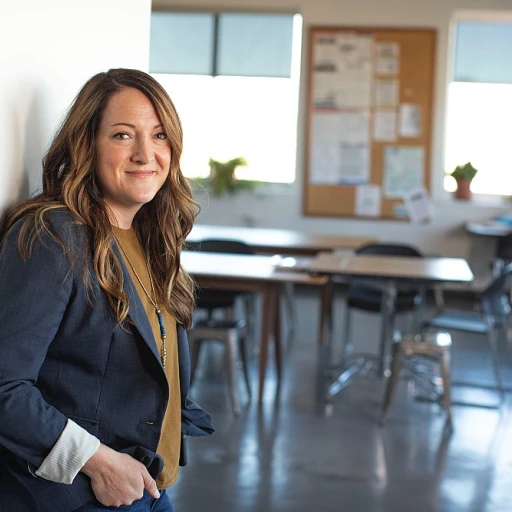
Understanding the Importance of Public Speaking for Kids
Why Public Speaking Matters for Young Minds
Public speaking is more than just a skill; it's a crucial component of effective communication that can significantly impact a child's development. In today's fast-paced world, where communication skills are paramount, introducing kids to public speaking early on can lay a strong foundation for their future success.
Building Confidence Through Speech
One of the primary benefits of public speaking classes is the boost in confidence that children experience. When kids learn to articulate their thoughts clearly, they naturally develop a sense of self-assurance. This newfound confidence extends beyond the podium, helping them in various aspects of life, from school presentations to social interactions.
Enhancing Communication Skills
Public speaking classes are designed to improve a child's communication skills. These classes teach students how to organize their thoughts, use appropriate body language, and maintain eye contact—all essential elements of effective communication. By participating in these classes, children will learn to express themselves more clearly and persuasively.
Fostering Leadership and Teamwork
Engaging in public speaking activities also nurtures leadership qualities in young learners. As they prepare and deliver speeches, students will develop skills that are vital for leadership roles. Additionally, many speaking classes encourage teamwork, allowing children to collaborate with peers, which further enhances their ability to work effectively in group settings.
Preparing for Future Opportunities
By enrolling in public speaking courses, children are better prepared for future academic and professional opportunities. Whether it's participating in a debate club, leading a group project, or delivering a presentation, the skills acquired in these classes will be invaluable. Moreover, with the availability of online public speaking classes, children can access these resources from anywhere, including bustling cities like Los Angeles.
Benefits of Public Speaking Classes for Young Learners
Unlocking Potential through Structured Learning
Public speaking classes provide a structured environment where children can develop essential communication skills. The benefits of enrolling kids in such programs are multi-faceted, impacting their academic and social lives positively. In a supportive environment, students will learn to articulate their thoughts with clarity and poise, while gradually overcoming common hurdles associated with delivering speeches in public.
These classes often emphasize practical exercises that help students build confidence. Young learners are encouraged to engage actively in speaking class activities that range from delivering short speeches, participating in group discussions, to conducting presentations. Practicing eye contact and using effective body language are some of the key components that instill confidence in children, enabling them to express themselves compellingly.
Another advantage of such programs is the opportunity for students will to engage in youth leadership activities. Leading a group or presenting a topic helps kids acquire leadership skills, which are integral to their overall development. Moreover, classes are designed to accommodate different learning styles, ensuring that each child progresses at their own pace.
Public speaking courses often offer a mix of offline and online public sessions, catering to various preferences and schedules. Parents looking for options in bustling cities like Los Angeles can opt for a free trial session to assess the suitability of the program for their child. Moreover, investing in a good speaking course can lead to long-term benefits as these communication skills are crucial in virtually every field.
The relationship between mentors and students is instrumental in fostering a safe learning environment. Teachers and coaches play a pivotal role in guiding children, offering constructive feedback, and helping them overcome stage fright and anxiety. Their encouragement and affirmation can significantly impact a child's confidence, sparking newfound enthusiasm for public speaking.
Key Elements of Effective Public Speaking Programs
Building the Foundations: Essential Components of a Public Speaking Curriculum
When it comes to public speaking classes designed for kids, incorporating specific components is crucial for allowing students to blossom into confident communicators. Here are the key elements that should form the basis of an effective public speaking program:- Comprehensive Instruction on Speaking Skills: A strong curriculum covers the fundamentals of speech delivery, including organization, clarity, and pacing. Students will learn how to construct a coherent and engaging speech, honing their ability to convey ideas effectively.
- Focus on Body Language and Eye Contact: Non-verbal cues play a significant role in public speaking. Classes should emphasize the importance of maintaining good posture, using appropriate gestures, and making eye contact to engage the audience and enhance communication skills.
- Development of Presentation Skills: An effective program should offer students opportunities to practice presenting in front of peers, utilizing multimedia tools to support their message. This not only boosts their technical skills but also bolsters their confidence.
- Interactive and Supportive Environment: Creating a positive and supportive atmosphere encourages children to take risks and overcome their fears. Teachers should provide constructive feedback that motivates kids to continue improving their speaking abilities.
- Focus on Youth Leadership: Cultivating leadership through speaking classes can empower children. Programs often include leadership activities to instill a sense of initiative and responsibility, setting them up for future success in public life.
- Online and In-Person Options: Offering a variety of formats such as online public speaking classes, allows greater accessibility. This flexibility ensures that no child is left behind, whether they are in Los Angeles or across the globe.
Choosing the Right Public Speaking Class for Your Child
Finding the Best Fit for Your Child's Needs
When it comes to selecting the right public speaking class for your child, numerous factors come into play. It's vital to ensure that the class aligns with your child's learning style and individual needs. Evaluating these factors can help in fostering their communication skills and overall confidence.
One of the primary considerations is the mode of delivery – whether the classes are conducted online or in-person. Online public speaking classes can offer flexibility and access to a wider range of programs, while in-person classes might provide a more hands-on learning experience. It's important to assess which setting will benefit your child the most, as some children thrive in a virtual environment while others might find a traditional classroom setting more engaging.
Class size is another crucial element to consider. Smaller class sizes often lead to a more personalized learning experience, allowing instructors to focus on each student's unique needs. This encourages greater participation in learning speech techniques, absorbing methods to improve eye contact, and developing body language.
The curriculum should also be tailored to develop a broad set of communication skills. As your child advances through the course, they should gain practical skills in presenting speeches, building leadership qualities, and enhancing overall communication skills. Opt for programs that offer a mix of practice and theory, culminating in opportunities for children to deliver speeches in a supportive environment. Many classes provide a free trial, allowing you to evaluate whether the teaching methods and content are appropriate for your child's learning journey.
Finally, consider the qualifications and experience of the teacher. A professional with a background in youth leadership and public speaking will be well-equipped to foster a supportive environment in which students will develop their speaking skills effectively.
Investing ample time in choosing the right class ensures that your child embarks on a journey that not only bolsters their public speaking skills but also helps them develop lifelong confidence.
Overcoming Common Challenges in Public Speaking for Kids
Tackling Fear and Building Resilience
One of the greatest hurdles young students face in public speaking classes is overcoming their fear of speaking in front of an audience. This fear is common among children and can lead to avoidance behaviors. To help children surmount this challenge, both instructors and parents need to focus on building their confidence gradually through supportive environments. By providing consistent encouragement and recognizing each child's unique strengths, confidence will naturally build over time.
Strengthening Communication Skills
Participation in speaking classes empowers children by enhancing their communication skills. Emphasizing elements like body language, eye contact, and clear articulation helps to equip students with a versatile skill set. Each speaking class focuses on refining these skills, ensuring students can convey their messages effectively and compellingly. Step by step, this structured learning process will develop core abilities essential in various aspects of life, including leadership and social interactions.
Personalized Learning Approaches
Each child learns differently, and it is crucial to accommodate individual learning styles. Courses tailored to address the specific needs of students will be more effective in honing their public speaking abilities. Whether in a traditional class setup or through online public speaking platforms, the ultimate goal is to support each child in reaching their potential by adapting teaching strategies to match their learning pace and preferences.
Free Resources and Trial Opportunities
For parents looking to explore public speaking classes for their kids, many options offer free trials. These trials allow a glimpse into the course structure and the opportunity to gauge how the child responds to the format and instructor. Additionally, some courses provide free resources to further supplement learning, ensuring that children have the maximum chance to develop their presentation skills effectively.
The Role of Parents and Mentors in Supporting Young Speakers
Parents and Mentors: Pillars in a Child's Journey to Become a Confident Speaker
Public speaking can be daunting, especially for kids. That's where parents and mentors play crucial roles in providing a supportive environment for budding speakers. Whether it's through participation in public speaking classes or completion of an online public speech course, children thrive when they feel encouraged by trusted figures in their lives.- Fostering a Positive Outlook: Encouragement from parents and mentors not only boosts a child's confidence but also helps them to believe in their speaking abilities. Celebrating small wins and providing constructive feedback after their speeches can reinforce positive behaviors and improve their skills.
- Involvement in Learning: Engaging with children during their public speaking journey positively impacts their development. Practicing speeches together at home or attending their speaking classes can demonstrate interest and support. Such involvement will not only develop their communication skills but also solidify youth leadership traits.
- Providing Resources and Opportunities: Opportunities such as online public speaking classes in Los Angeles or even a free trial class enable kids to explore different facets of public speaking. Parents and mentors can encourage participation in these classes, where students will learn crucial presentation skills like eye contact and body language.
- Addressing Challenges: Public speaking can present challenges, from nervousness to difficulty in maintaining eye contact. Parents and mentors can help tackle these hurdles by offering tips and embracing strategies shared in classes starting from simple breathing exercises to focusing on relaxed body language.













